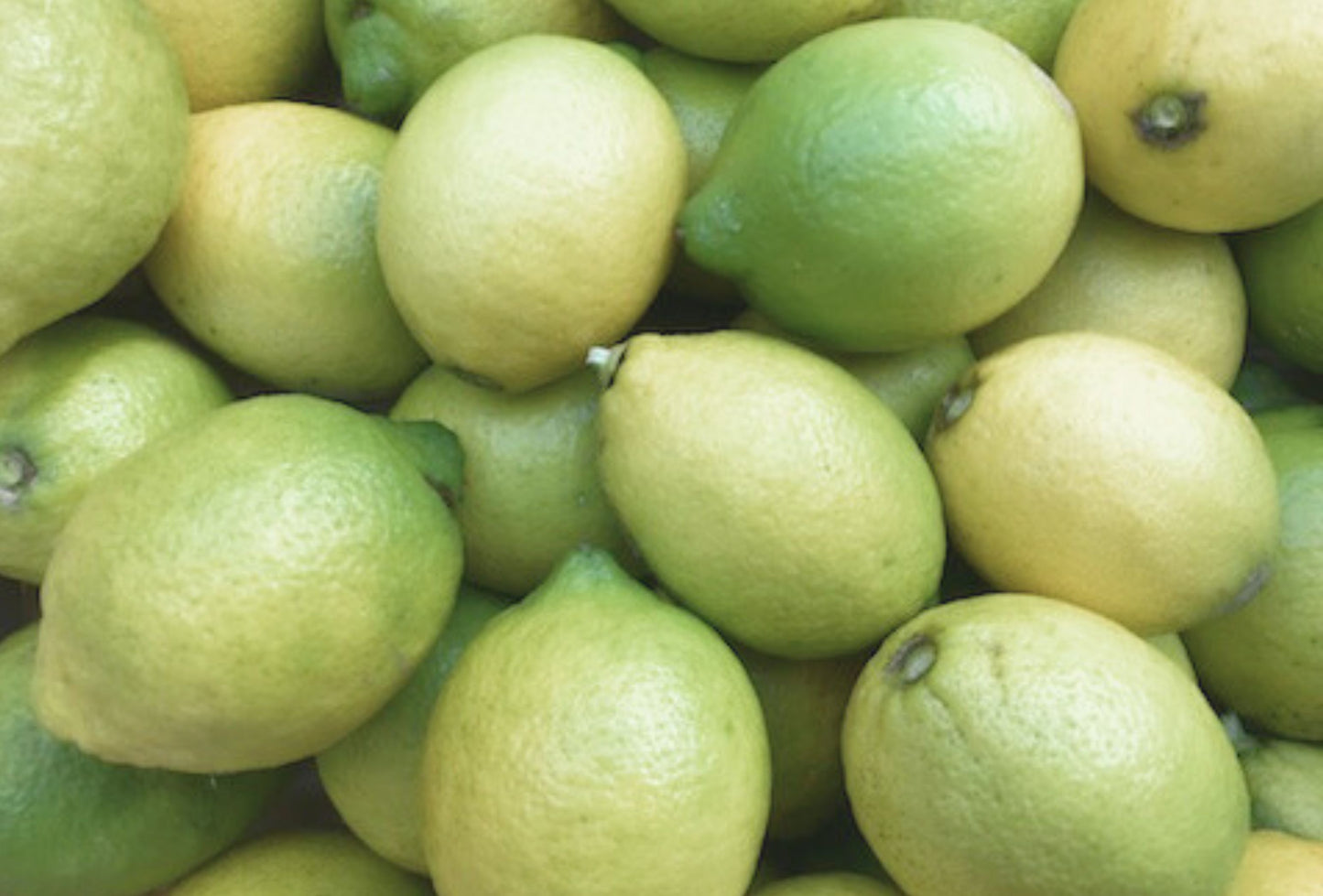Organic Lemons
Organic Lemons
Lemon is a citrus fruit that is mainly used for its juice, a rich source of vitamin C and acids. It also has antioxidant properties and is particularly useful as a purifier.
Our organic and untreated lemons are particularly suitable for use in the kitchen: for example, to flavour dishes and drinks or to prepare limoncello, given the absence of treatments even after harvesting.
How we produce our organic lemons
Our organic lemons are grown in open fields following the organic production method , which involves the use of natural fertilizers and cultivation practices that positively influence the fertility and structure of the soil (shredding of pruning residues, green manure, etc.).
Untreated lemons
Our lemons are not treated even after harvesting, for example with wax or anti-mold to prolong their shelf life, so you can use their peel with peace of mind . Precisely because of their genuineness, given the absence of chemical treatments, they may present defects on the peel that do not compromise the organoleptic and nutritional qualities of our lemons.
Conservation
Our untreated lemons, thanks to their freshness, can last for several weeks. It is advisable to store them in a dry and cool environment (cellar, terrace, veranda, etc.), placing them in large containers and avoiding that they are piled up.
Shipping
Free in Italy, with delivery in 48 hours.
Caliber: Mixed
Lemon: characteristics
The lemon is characterized by its oval or elliptical shape and by the presence of a protuberance at the apical end. When it reaches maturity it has a yellow color, even if the “green” lemons are widespread, by virtue of their green color, obtained with the technique of “forcing the lemon”, with which a further flowering of the plant is systolic.
Lemon is grown mainly in the Mediterranean basin (Italy, Spain, Greece, Turkey, etc.), in California and Argentina, while it is absent in both tropical areas (where lime is used) and in areas with low temperatures, as it is the most sensitive of citrus fruits to the cold (along with bergamot).
One of the main characteristics of the lemon is its tendency to re-bloom, which depends both on the type of variety (e.g. Femminello variety) and on environmental conditions. In fact, there can be three blooms. The main one occurs between March and June, typical of all lemon cultivars, from which the most abundant fruiting derives with the so-called “winter” lemons, very juicy and acidic, which are harvested from December to March. Some of the lemons from the main blooming already reach a size suitable for marketing in October and are called “Limoni Primofiore”. The second flowering of the lemon occurs between June and July while the fruiting follows in the months of March and April, obtaining the so-called “biancuzzi” or “bianchetti” lemons, characterized by a pale yellow skin and lower acidity than the “winter” lemons. Finally, the third flowering occurs in August with the aforementioned forcing technique. This technique consists of suspending irrigation in July until the plant shows signs of suffering (wilting of the leaves). At this time, irrigation of the lemon plants is resumed. The “verdelli” lemons are harvested in the summer, they are characterized by green peel, low acidity and little juice. In the past this type of lemon was considered very valuable, while today their demand is lower because during the summer months lemons from Argentina are present in Italy.
Untreated Lemons: How to Use Them
Lemon can be used in a thousand ways in the kitchen: first of all, it is excellent for seasoning fish and salads, for preparing a delicious risotto and is the basis of many dessert recipes. With this citrus fruit, it is also possible to prepare jams and lemonades, granitas, sorbets, ice creams and even sweets! Lemon also has excellent degreasing properties, so you can use it to clean a greasy work surface and to wash dishes, or to clean the coffee maker and the microwave. Burning the lemon peel helps eliminate bad smells and keeps insects away. This citrus fruit can then be used for skin care: for example, it can be rubbed on the hands to eliminate the smell of garlic and onion, or, mixed with baking soda, it is useful for softening the skin on the elbows. Finally, it is an excellent remedy against acne, it can be used to whiten teeth and, mixed with olive oil and salt, it is an excellent body scrub.




